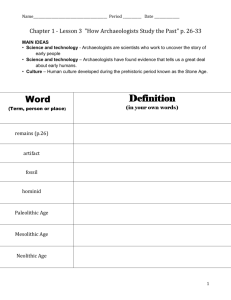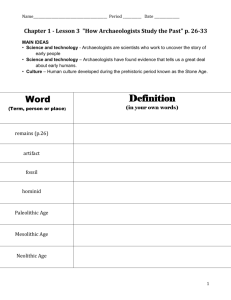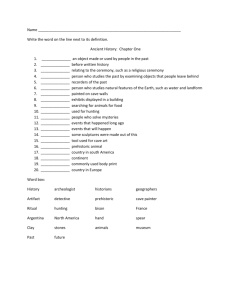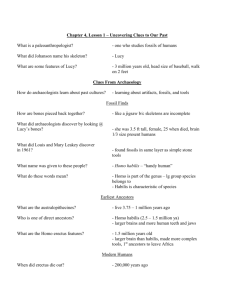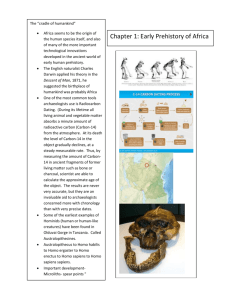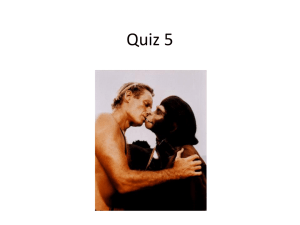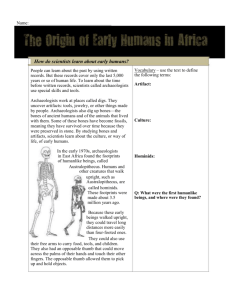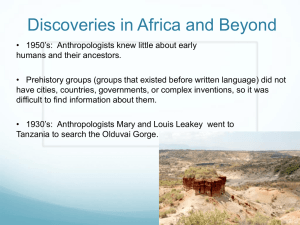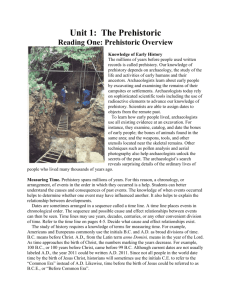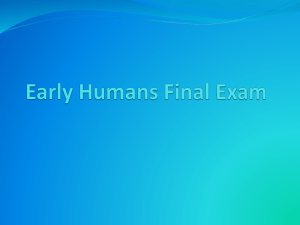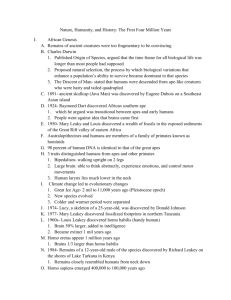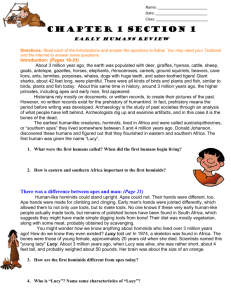Lesson 3 Classwork
advertisement
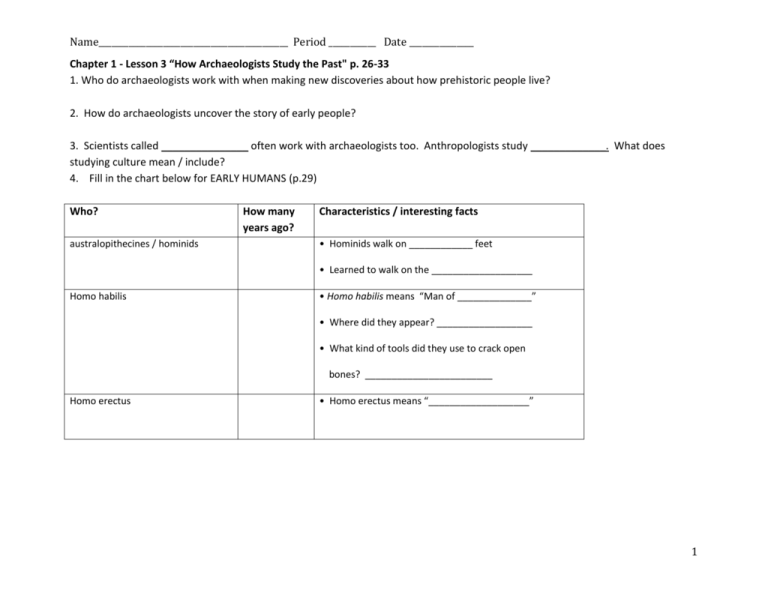
Name____________________________________________ Period ___________ Date _______________ Chapter 1 - Lesson 3 “How Archaeologists Study the Past" p. 26-33 1. Who do archaeologists work with when making new discoveries about how prehistoric people live? 2. How do archaeologists uncover the story of early people? 3. Scientists called _______________ often work with archaeologists too. Anthropologists study _____________. What does studying culture mean / include? 4. Fill in the chart below for EARLY HUMANS (p.29) Who? australopithecines / hominids How many years ago? Characteristics / interesting facts • Hominids walk on ____________ feet • Learned to walk on the ___________________ Homo habilis • Homo habilis means “Man of ______________” • Where did they appear? __________________ • What kind of tools did they use to crack open bones? ________________________ Homo erectus • Homo erectus means “___________________” 1 Name____________________________________________ Period ___________ Date _______________ 5. Fill in the chart below for MODERN HUMANS (p.30) Who? How many Characteristics / interesting facts years ago? • Homo sapien means _______________ Homo sapiens • they ____________ their dead • they created ___________________ • made __________________ tools • began to ____________________________ • developed _______________ systems • built _____________________________ • migrated from ________ to________ and ____ 6. What was the name of the husband/wife who first began searching for early human remains in Africa in the 1930’s? 7. In 1974, American archaeologist Donald Johanson discovered an unusually complete skeleton of an australopithecine. He and his team named the skeleton ___________. 8. Answer these questions about Lucy from the History Makers section on p.31. a. Where in Africa did they find the skeleton of Lucy? b. What was the first part of the skeleton discovered? c. How much of the skeleton were they able to retrieve? d. Why is she named Lucy? e. What was Lucy’s brain like and what animal did they compare it to? f. Was Lucy able to walk upright? g. What theory did Lucy challenge? The theory 2 Name____________________________________________ Period ___________ Date _______________ brain led n The invention of tools, the mastery of fire and the development of language and farming are some of humankind’s most important achievements. These advances took place during the prehistoric period known as the Stone Age. Period Paleolithic Age (Old Stone Age) Dates 2.5 million – 8000 BC Characteristics of period • homo period • hunters and gatherers • used simple stone tools with sharp edges to cut and chop Mesolithic Age (Middle Stone Age) 10,000 – 6000 BC • developed needles, thread, harpoons, and spear throwers • began to control fire and develop language • specialize in hunting particular animals • gatherers used grindstones to prepare the food they gathered Neolithic Age (New Stone Age) 8000 – 3000 BC • only homo sapiens lived during this time • • 3
